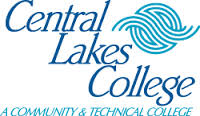What do they do?
Apply or release chemical solutions or toxic gases and set traps to kill or remove pests and vermin that infest buildings and surrounding areas.
Also known as:
Certified Pest Control Technician, Chemical Applicator, Commercial Pest Control Technician, Commercial Technician, Exterminator, Pest Control Applicator, Pest Control Chemical Technician, Pest Control Operator, Pest Control Technician (Pest Control Tech), Pest Technician, Residential Pest Control Technician, Service Technician, Termite Technician
-
3.2%
Change
Select a state to see its job growth rate ranking12,600Job Openings
Select a state to see its net job growth ranking
Looking for colleges that offer a specific major? Use the College Match Tool to find your best-matched schools and discover your estimated Net Price!
- High school diploma equivalent (47%)
- Some college, no degree (26%)
- Bachelor's degree (11%)
- Associate's degree (9%)
- Less than high school diploma (5%)
- Master's degree (1%)
- Doctorate or Professional Degree (<1%)
Most Popular Majors that prepare Pest Control Workers
-
#1
-
Degrees Granted
68
-
Female Students
1
-
Male Students
67
-
Median Starting Salary
$56,989
-
-
#2
-
Degrees Granted
46
-
Female Students
2
-
Male Students
44
-
Median Starting Salary
$47,900
-
-
#3
-
Degrees Granted
39
-
Female Students
3
-
Male Students
36
-
Median Starting Salary
$56,989
-
-
#4
-
Degrees Granted
9
-
Female Students
5
-
Male Students
4
-
Median Starting Salary
$37,600
-
-
#5
-
Degrees Granted
5
-
Female Students
2
-
Male Students
3
-
Median Starting Salary
$37,600
-
People in this career often have these skills:
- Active Listening - Giving full attention to what other people are saying, taking time to understand the points being made, asking questions as appropriate, and not interrupting at inappropriate times.
- Critical Thinking - Using logic and reasoning to identify the strengths and weaknesses of alternative solutions, conclusions, or approaches to problems.
- Writing - Communicating effectively in writing as appropriate for the needs of the audience.
- Speaking - Talking to others to convey information effectively.
- Monitoring - Monitoring/Assessing performance of yourself, other individuals, or organizations to make improvements or take corrective action.
- Time Management - Managing one's own time and the time of others.
- Social Perceptiveness - Being aware of others' reactions and understanding why they react as they do.
People in this career often have talent in:
- Near Vision - The ability to see details at close range (within a few feet of the observer).
- Oral Comprehension - The ability to listen to and understand information and ideas presented through spoken words and sentences.
- Oral Expression - The ability to communicate information and ideas in speaking so others will understand.
- Speech Clarity - The ability to speak clearly so others can understand you.
- Written Expression - The ability to communicate information and ideas in writing so others will understand.
- Problem Sensitivity - The ability to tell when something is wrong or is likely to go wrong. It does not involve solving the problem, only recognizing that there is a problem.
- Deductive Reasoning - The ability to apply general rules to specific problems to produce answers that make sense.
- Speech Recognition - The ability to identify and understand the speech of another person.
- Inductive Reasoning - The ability to combine pieces of information to form general rules or conclusions (includes finding a relationship among seemingly unrelated events).
- Far Vision - The ability to see details at a distance.
People in this career often do these activities:
- Document work hours or activities.
- Inspect buildings or grounds to determine condition.
- Recommend products or services to customers.
- Block physical access to restricted areas.
- Notify others of emergencies, problems, or hazards.
- Treat greenery or surfaces with protective substances.
- Clean facilities or sites.
- Drive trucks or other vehicles to or at work sites.
- Estimate maintenance service requirements or costs.
- Evaluate reports or designs to determine work needs.
- Treat facilities to eliminate pests.
- Supervise maintenance workers.
- Seal gaps or cracks to prevent leakage or moisture intrusion.
This page includes data from:

 Occupation statistics: USDOL U.S. Bureau of Labor Statistics Occupational Employment Statistics
Occupation statistics: USDOL U.S. Bureau of Labor Statistics Occupational Employment Statistics
 Videos: CareerOneStop, USDOL/ETA and the Minnesota Department of Employment & Economic Development
Videos: CareerOneStop, USDOL/ETA and the Minnesota Department of Employment & Economic Development








